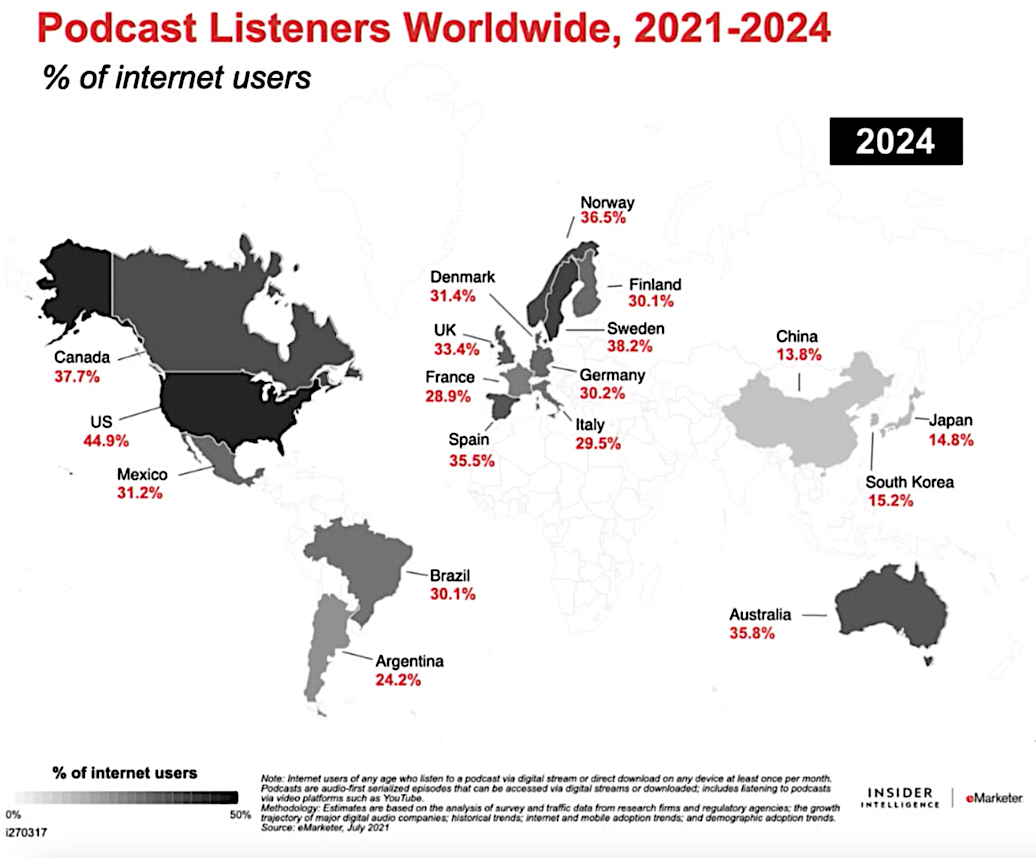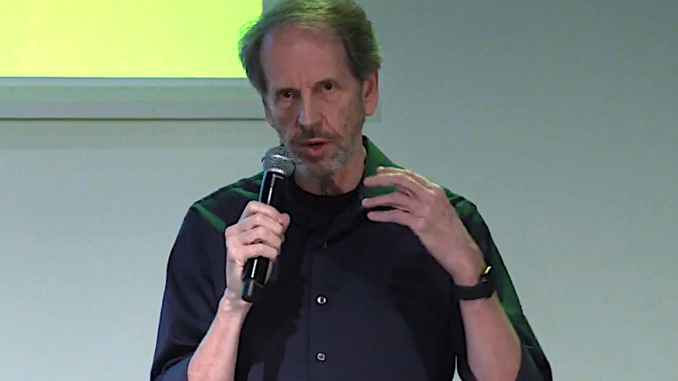
Daniella Murphy, creative director at Acast UK talked about how to make podcasts pay without selling out, in today’s Podcast stream at Radiodays Europe.
“Ads don’t need to be a tax that poor pay to consume good content… Ads should be just as enjoyable as the content,” she told conference delegates.
She also urged podcast advertisers to “take the conversation into the real world.” To illustrate the point she told the story of a bank that teamed with a podcast to create a card game called ‘Money Talks.’ Each card asked a question to get people having conversations and asking advice about money, something that people in the British target audience were reluctant to do.
As part of the promotion for the game and the bank, Acast and the agency responsible got many podcasters to play the card game in their podcasts and include the conversations they had about money. The response was so strong that there was huge demand for the card game. “It took the conversation beyond audio into the real world,” said Daniella.
Daniella’s Ten Commandments for good podcast advertising are:
- Respect your audience – “it’s an intimate environment, don’t shit in my head,” with over the top or disrespectful messages.
- Worship simplicity – “what is the single most important thing to communicate,” take away all the rest and put that in the ad.
- Be believable – “the audience feel they’re your friend… friends don’t lie to you.”
- Embrace emotion – “people are full of emotion” put it in your podcast ads
- Stories not scripts – you will get your message across better by telling stories not making hosts read boring ad scripts.
- Show don’t tell – “use immersive sounds, place people on location by letting them hear the kitchen or the factory… don’t rely entirely on words.”
- Never copy and paste your creative – “tailor it to the podcast medium, which is a highly personal medium.” Don’t just use radio ads on podcasts, tailor your treatment to the podcast environment.
- Beware of Cliches – “is there a more interesting way to say it than using advertising or compliance jargon.”
- Think beyond the podcast to the real world
- Have fun!
In the same session, Rob Greenlee from podcast hosting company Libsyn said podcast listeners are increasing everywhere and the industry is “expecting a huge increase in monetisation right across the world.”
“The beginnings of podcasting were largely anti-commercial, but things have changed over the 18 years that podcasting has been around. Now people want to get a return on the investments they have made in podcasting,” he told conference delegates.
He showed a chart illustrating the penetration of podcasts into major world markets as a percentage of internet users. Canada and Sweden are doing very well and there is growth happening on most developed markets.
Why should people advertise on podcasts?
“To reach and target matched niche audiences,” said Greenlee. “Radio is not made in a way to take advantage of niche audiences but podcasts can. It is also a safe medium for advertisers – something their brand would like to be associated with.
“Campaigns are usually longer and frequency is important, so is the value of the message and the trust between the podcaster and the audience. Advertisers get a targeted educated audience with good disposable income through podcasts.”
Greenlee predicts that podcast revenue worldwide will be worth $2 billion this year
To be successful in monetising your podcast Greenless says you should ask who is your customer, the audience or the advertiser? “What you answer will have an impact on your growth and who you are trying to reach.”
“Podcasting builds strong trust and relationships with the audience and it builds advertiser trust,” he said, outlining the types of advertising in podcasts.
One of the significant changes is the increase in dynamically inserted ads and the decrease of baked in ad reads that are recorded when the podcast is recorded and remain in the show forever. The new term being used is not ‘baked in’ but ‘faked in’ advertising – the host still reads updated ads, but they are dynamically inserted, even into old shows.
In Greenlee’s opinion, putting the ad within the content (mid-roll) is better than putting it at the beginning of the content (pre-roll) because it connects better to the host and the content that people are closely listening to.
For less commercial shows, paid podcast subscriptions and crowd funding through donation platforms such as Patreon are more successful than inserted ads, because those podcasts may not have enough listeners to gain much advertising.
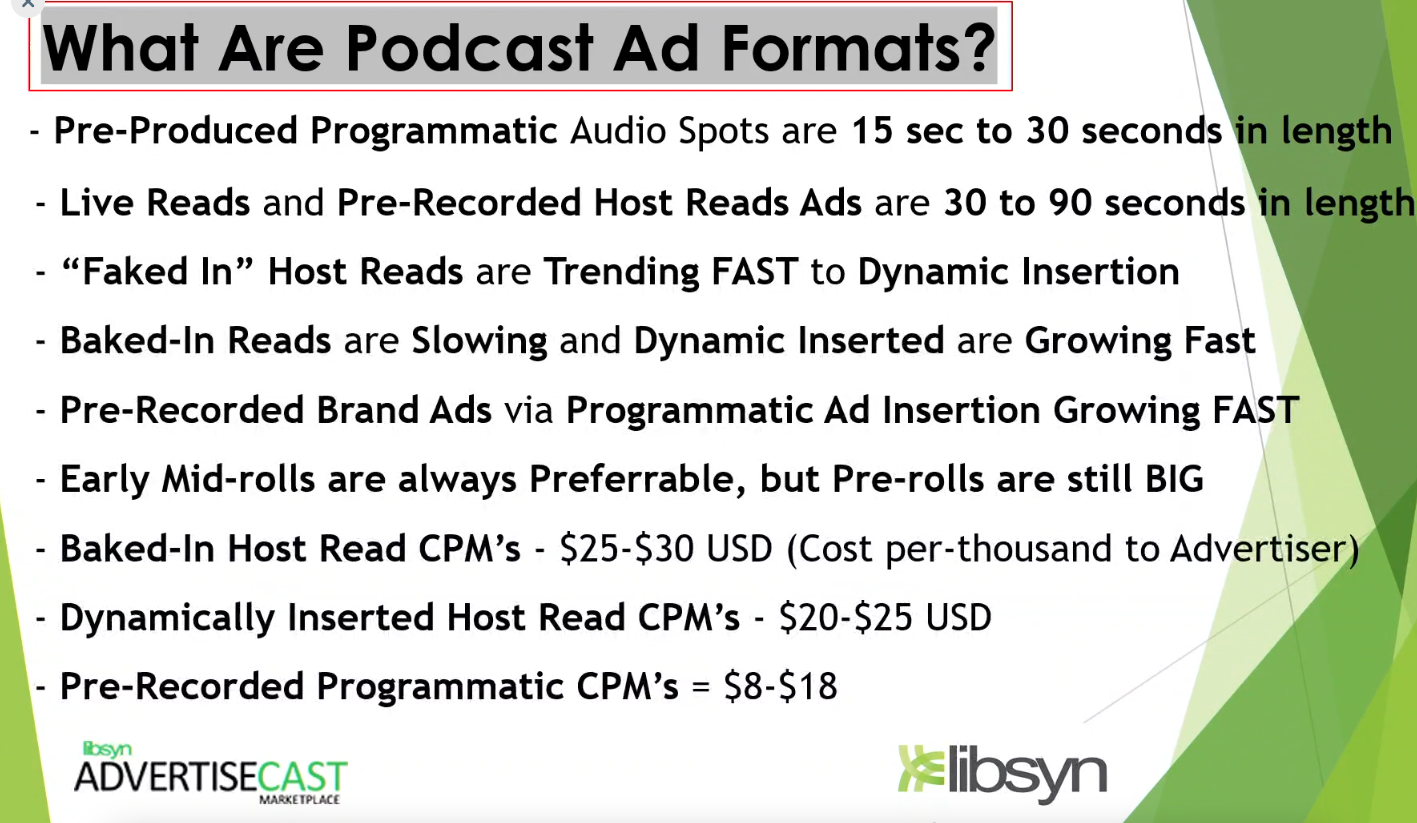
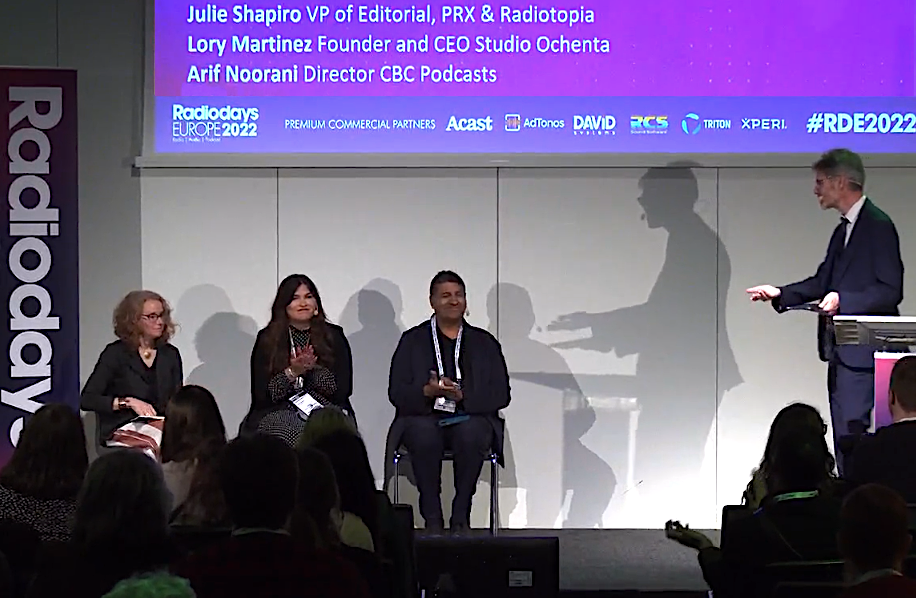
In a session in the same stream Julie Shapiro, Lory Martinez and Arif Noorani discussed their podcast company philosophies.
Arif explained that CBC Podcasts are a mixture of repurposed radio shows and new bespoke shows.
“Narrative storytelling is where we excel… We want our content to do well on the world stage.”
Lory’s company takes a pragmatic approach: “We ask, will this resonate with people in other countries, other than the one it has been made in.” She used the examples of a story about a Mexican girl. “It was not a Mexican/American story, it was a story of a girl looking for her missing mother.”
New podcast genres that the panel identified as likely to take off in the coming year in include:
- Biographies and memoirs
- Science Fiction
- Comedy
- Children’s audio
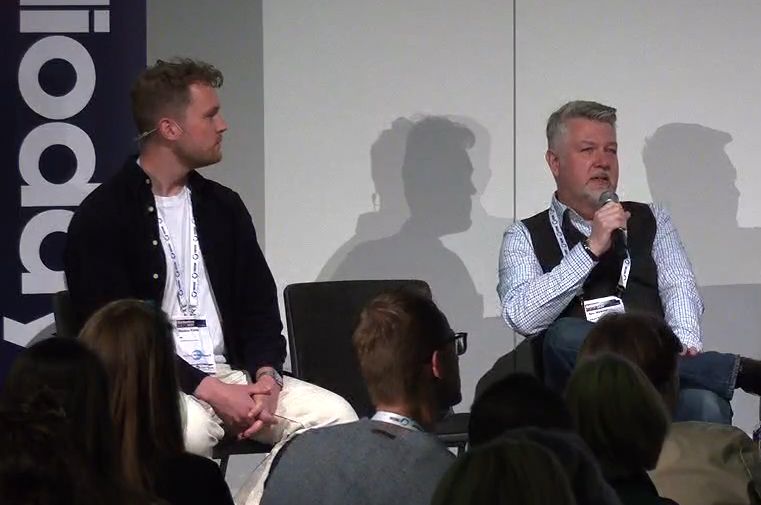
It is no surprise that News podcasts are so numerous in popular podcast genres. Tom Webster said that his Edison Research studies have confirmed that habit is a big factor in success.
“When news podcasts are released at the same time daily you build a habit around them… predictable reliable and consistent delivery produces rewards.”
This story first appeared on RadioInfo.asia

